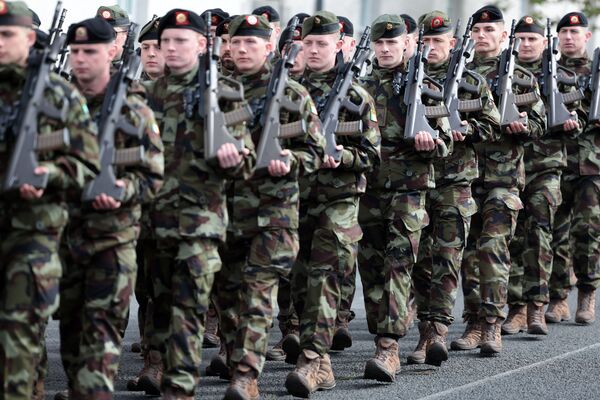SO it seems Aidan McAnespie’s family has got justice at last. Late last month, Belfast crown court ruled that David Holden, now 53, showed ‘gross negligence’ when, as a British soldier, he shot dead Aidan McAnespie in 1988. Holden said his finger slipped on the trigger.
At the time, the British army fined him and he was ‘medically discharged’. Let’s include all of the facts, including this awkward one: the bullet which entered Aidan McAnespie’s back and killed him ricocheted off the ground. Last week, Aidan McAnespie’s loved ones hugged and cried after the verdict. In contrast, British army veterans’ groups were very, very angry. Reasonable reactions all round, you might say. But pull back and consider what we see as reasonable.
We’re saying it’s reasonable that there should be a 34-year waiting period before the truth about Aidan McAnespie’s death should emerge? We’re saying that it’s reasonable the McAnespie family weep with joy at this much-delayed ruling of manslaughter? And that British army veterans should be angry at this ruling? In that case, let’s flip this thing around. In some alternative universe, the Irish Army is stationed in Yorkshire for several decades. Their presence is supported by the Irish government, which for centuries has claimed the right to govern Yorkshire.
Over the decades, Irish soldiers have routinely stopped ordinary Yorkshire people, searched their person and their vehicles. Occasionally units of the Irish army go on a shooting spree, where they kill 10 and 14 Yorkshire people, more often just one or two. Yet big death-count or small death-count, none of the Irish soldiers ends up being punished for these killings. In this alternative world, the Irish Army puts out announcements about the killings, declaring that all those killed were armed. In short, they lie about murder. Too far-fetched?
Then let’s try an alternative universe closer to home. In this one, the six counties of Munster are the unwilling hosts to thousands of British soldiers, and the British Government lays claim to jurisdiction over these six counties. People from Cork and Kerry are stopped and searched. The people of Waterford and Clare are frisked when they enter shops or even walk their own streets. And thousands of young Munstermen are interned without trial. Would the people of Cork and Kerry, Limerick and Clare, Waterford and Tipperary put up with such things? Would resistance to these troops be denounced as murder? Unlikely. Why, then, has the Dublin government for the last half-century urged Ulster nationalists and republicans to stop whining?
It's past time the Dublin government grappled with the facts. The experience of nationalists and republicans in NEI has been bad ever since the stateen’s creation, with gerrymander, discrimination and sectarian violence in every decade. For that very reason, nationalists and republicans in the North are keen that in any future reunited Ireland, minorities in general and unionists in particular must be treated as full and respected citizens. People say: “But how can a unionist be a unionist if they’re forced into a reunited Ireland?” Well, if they believe in democracy they’ll not see themselves as forced into anything. They’ll vote, they’ll feel confident that the voting was fair and free and they’ll accept the border poll verdict. That’s democracy.
Finally, a point often missed: an awful lot of people in NEI don’t care about politics – somewhere around one in three, we’re told. These people are primarily interested in being citizens of a well-run state that has a strong economy, an efficient health service, affordable housing, and a judicial system that deals with everyone in a fair-minded way. Such people, for better or worse, don’t build their lives around politics. They don’t even vote. This is the silent minority, and their demands are modest. They want a country where collusion and sectarianism don’t exist. And, I would guess, they want a country that will not allow young people to be shot in the back, leaving the assailant to walk away from his crime.








